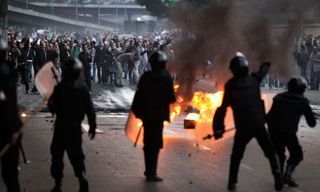Mary Beard's Blog, page 69
February 21, 2011
Dream School, Jamie Oliver and me
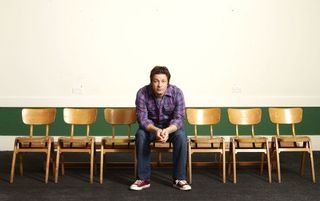
You might already have got wind of something I have been keeping a bit quiet about. I have been one of the teachers on Jamie Oliver's "Dream School" project -- a sort-of reality tv series in which a series of celebs, poets, politicians and academics teach a group of 20 kids, all of whom have ended up without 5 GCSEs at grades A to C. The project lasted six weeks or so, and I think I had 4 lessons -- all filmed.
My job was to teach them Latin.
Many hadn't done any foreign language past the age of 14... let alone something as structured as Latin. Most of them started out with some pretty decided views on what was and wasnt useful in life. So why do it?
Well,the bottom line is that it would have been cowardly and hypocritical not to take it on. If, like me, you go round shooting your mouth off about how great a subject Latin is -- then someone says why not come and have a go teaching our tv class . . . well it's a bit hard to say 'thanks, but no thanks'.
Was it wise? Probably not. But I got a lot further than I thought I might.
Who knows how it will look on tv? But Jamie is an aspirational, good-news kind of person .. so presumably it won't be a total disaster. Realistically, I had a higher mountain to climb than most of the others. For a start, I wasn't a celeb and they certainly wouldn't have heard of me. Then, I wasn't teaching them something that would get much of a round of applause down the local club. It wasnt, for example, quite like going sailing with Ellen MacArthur. Or, if I believe what's in the news today, it probably didnt quite equal the excitement of Robert Winston getting a sperm sample out of them . . .
But all the same it was a bit of a triumph (for me and them) to get about half of them reading, straight and in Latin a two line epigram of Martial ("Non amo te, Sabidi . . . "). I'm hoping that in 20 years tine they will remember the slightly eccentric old bat from Cambridge who taught them that , and they will encourage their kids to take up Latin when, and if, it's offered. After all, the educational process has a long view.. it's not just the GCSEs you get (or fail) now that counts, it's what you still remember half a life time away.
If there was a moving moment, it was when I had three of the students I had got to know best up to Cambridge to meet some of our university students. In some ways they were worlds apart. In other ways they had all kinds of overlapping concerns and anxieties, even if they had come to very different conclusions... mostly money, and what kind of investment formal education was likely to be (that will only get worse).
So watch with compassion please. And dont let AA Gill get me down.
February 18, 2011
Mubarak and Ben Ali: what would Tacitus say?
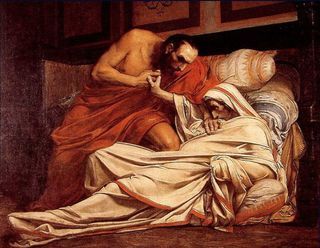
So the story is that Mubarak and Ben Ali are now both desperately ill -- indeed, it is said, in a coma. And there have been a handful of sharp comments, wondering what the "Deposed Dictator Syndrome" (DDS) actually is -- and how convenient it might be as a protective device against assassination.
I couldn't help thinking how Roman it all looked. There is a whole series of similar scenarios, brilliantly concocted by the brilliant Tacitus (I say 'concocted' because he cant possibly have known what went on). They are all centred on the grimy last moments of autocrats and dictators.
The basic rule for Tacitus is that despots don't die a natural death. In the midst of a power struggle they get smothered or poisoned, while the word is put out that they have been struck down by some nasty illness. Alternatively, they have long died (and this is more the 'Soviet president scenario'), while the word is put out that he is still hanging on to life -- until the new emperor is ready to be presented to the troops and the people. Livy even manages to retroject this scenario to the earliest kings of Rome, and has Tanaquil easing Servius Tullius onto the throne, by carefully managing the death of Tarquinius Priscus. (And it is the emperor Tiberius at the top of this post.)
It's not hard to invent what Tacitus might have to say about the roles of Susan Mubarak, Gamal, Alaa, Suleiman -- and a few strategically placed pillows and poisoned mushrooms. There is a difference though. Tacitus' stories were all about ensuring the succession of some favoured, or not so favoured, son. Whatever family disputes went on before these guys decided to cave in, they have presumably given up all hope of imperial style dynasty. Here the aim is presumably to avoid (as DDS has it) the assassin's bullet -- or to ensure the succession of the wealth, even if not the political office itself.
Let illness take its course.
February 15, 2011
CASVA: an office to die for
 '
'
I am just getting settled in at the the National Gallery in Washington DC, where I am based at CASVA (the Center for the Advanced Studies of the Visual Arts) - busy preparing my lectures on the "Twelve Caesars".
The truth is that I have loads of ideas on this, and some amazing new stuff that I'm sure most people won't know about. But, for better or worse, I haven't yet got The Big Idea. But there is still six weeks to go (and actually it seems to me that it may be 'for better' not to have the big idea .. never quite sure how crudifying those 'big ideas' are).
But if there was any place you could get a Big Idea, it would be CASVA.
The picture at the top is the view from my office.
 How cool is that? This office is in the new East block of the National Gallery in Washington DC, a wonderfully idiosyncratic building by I M Pei (the story is that there are no right angles...). And actually I dont quite see what the picture at the top shows, because Pei has insisted that no one actually pulls up their blinds (I put my iphone on the other side of the blinds).
How cool is that? This office is in the new East block of the National Gallery in Washington DC, a wonderfully idiosyncratic building by I M Pei (the story is that there are no right angles...). And actually I dont quite see what the picture at the top shows, because Pei has insisted that no one actually pulls up their blinds (I put my iphone on the other side of the blinds).
But architecture apart (and I really like it), it is a wonderful place to do research. And I have to confess that it is easier and better resourced than anything you would get in the uk. That goes for everything from people with time to help you (thanks all) to photo-copying and locating books. Can you believe it that in Cambridge, if someone has a book out that you want, you are not allowed to know who it is ('data protection' madam) -- here they just tell you who has it out AND they tell you how to get in touch with them. That makes several days' difference in tracking something down.
The truth is that this is a better place to do research than  the UK. The reason for that is CUTS at home -- even though I never thought I would say that. You dont usually get good research without good money.
the UK. The reason for that is CUTS at home -- even though I never thought I would say that. You dont usually get good research without good money.
Meanwhile, I cant help thinking that if my Mum and Dad had seen my office (neither of them had ever been to America) they would have been so proud. I'm 56 -- do you ever stop thinking about what your parents would make of how you have turned out?
February 13, 2011
Where does "King Tut" belong?
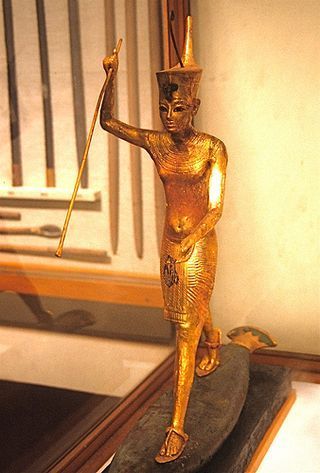
Tactless it may be, but I have been itching to say this for several days. The sad looting of the Egyptian Museum in Cairo gives yet another reason why the dispersal of major treasures around the world may be a good thing, not an imperialist crime.
I don't mean that everything should end up in the British Museum (or the Met, or the Louvre). In the medium to long term, we can't be certain which parts of the world are going to be safest -- whether that is a question or crime, riot, flood or fire. Over the next millennium London may be no less vulnerable than Kabul But we do know that 'all eggs in one basket' is bound to be a bad idea.
Only a year or so ago, Zahi Hawass was on the Today programme complaining that all the masterpieces of ancient Egyptian art were not in Egypt.
I hope he is eating his words.
Hawass certainly has not come well out of the Egyptian turmoils. First of all, he wrongy reassured the world that there had been some damage in the museum, but nothing had been taken. Then a few days later, he actually took a position in Mubarak's dying government...rushing onto a sinking ship as it were (and an uncomfortable indication, I suspect, of where his loyalties lay).
I am sure we all wish the Egyptians the very best for their revolution (and, in case you are wondering, the son went back there today to start his courses again). And they will have a lot more urgent things on ther minds (I hope) than who is gonig to take charge of antiquities. But when they get round to that bit of the agenda, I hope they will turn to someone who is less of a showman, less self-promoting and just a bit more sensible in their ideas of heritage management.
Someone who might give up all those ideas about a theme park of replica tombs. Someone who might stop the Mayor of Luxor digging up yet more stuff to e next year's conservation problem. Someone who will invest in the Greek, Roman, Christian and Islam heritage of Egypt -- as well as the pharaohs.
February 11, 2011
Grumpy old don
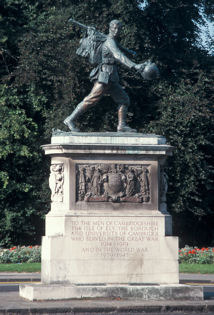
I fear that this post will bring accusations that I am gradually morphing into a curmudgeonly, conservative donnish equivalent of a Daily Mail reader. But here goes.
In between the news from Egypt this week (the son has plans to return on Sunday...???), I did find time to have a look at the BBC Trust's report on Radio 4. Now some of this was rather sensible; credit where it is due. They are right, for example, to point to the dominance of the USA at the expense of Europe in foreign news reporting (not entirely unconnected with the fact that (most) US politicians seak English, I suspect). But the fixation with broadening the listener base and capturing the 'replenishing' at an earlier age sends shivers down the spine.
Who ever would argue that Radio One ought to be aiming to reach more elderly listeners (more oldies and Vera Lynn)?
So why are we much bothered if the Radio Four audience tend to the more mature of us? So long as people turn to it eventually, and it gets a good audience that is fine. And maybe it wouldnt be surprising, given the shifts in contemporary culture, if the audience landed on Radio Four's doorstep slightly later.
But the really frightening thing was the steps being recommended to attract this younger audience.
Like: "Continuing to develop the general tone of the station away from formality and
perceived didacticism towards spontaneity and conversation."
Or: "Similarly, the tone of some serious documentaries will be refreshed, making them
sound less studio-based in order to appeal to a wider audience not weaned on
Radio 4, but interested in intelligent speech."
We all know what that word "refreshed" is a euphemism for. It's the kind of thing that changed the good, serious, Reith lectures into a Sue Lawley hosted chatshow.
And while in the grumpy mood, can I alert you to the plans (long standing ones, apparently) to relocate the Cambridge War Memorial (at the top of this post) from its site at the bottom of Station Road to some park somewhere.
It's a great bit of urban design, planned for this spot. The soldier is marching into town, but looking directly up to the station . . . for his other mates to come back, or not.
The reason it has to be moved is apparently that is create a traffic blockage!
Funny that, I thought that the whole point of the traffic management schemes in Cambridge at the moment was to create such blockages (try Grange Road...!) -- to slow the traffic down and discourage people from getting in their cars. This Tommy seems to be doing the job rather elegantly.
February 7, 2011
The great Roman emperor hunt
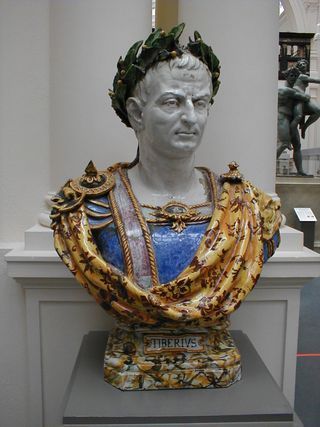
I am about to go to Washington to finish preparing my Roman emperor lectures. I think I have already said that the idea is to look at the images of Roman emperors from antiquity to, more or less, the present day. This turns out to have been a bit of an over-achievement, as Roman emperors were all over the place from the fifteenth century on -- and in the last few days I have been to see some brilliant stone emperors at Salisbury Hall, some equally brilliant early Roman kings (plus the emperor Augustus) at Lullingstone Castle, and a whole load of emperors, may-be emperors and almost-certainly-not-emperors at Hampton Court.
But some of the real puzzles remain are in a quite different medium. I shall fill you in later on the wonderful silver Aldobrandini Tazze (worth a few years of a research project in their own right). But I wonder if anyone can help with one question . . . about the tremendously in-your-face series of emperors, like the Tiberius at the top of this post.
Tiberius is a ceramic masterpiece, made by an Italian ceramicist, Angelo Minghetti, in the late nineteenth century -- and he is in the V and A. This museum also has a matching Caligula and Domitian (a nice trio of villains). Meanwhile there are two others -- Julius Caesar and Nero -- in Dublin; another two -- Titus and Vespasian -- in Geneva; a Claudius in Lisbon and an Augustus in Bologna (I havent managed to get an image of either of these, so if anyone has one I would be very grateful).
That makes nine. Presumably there were originally 12 .. as in Suetonius. OK, it's possible that Minghetti decided to leave out the three we dont have (Galba, Otho and Vitellius) on the grounds that they were so shortlived that they didn't deserve a big, expensive bust to themselves. But if so, he would have been unlike most Western artists since the fifteenth century. 12 was the rule.
So where are my final three. Maybe broken. But they are pretty recognisable. So if anyone out there has seen one of these (and if you had, I dont think you'd forget) -- do let me know where they are. And you'll get full credits.
As a postscript, let me just give a tribute to the museums (especially the V and A, and the BM) and all the private owners, who have helped in my emperor hunt. It must be a pain in the butt to have someone email and say... err, I am going to the USA next week, but can I see your dish/bust/cup on Weds or Thursday. But everyone has found a time and gone way beyond the call of duty. It is that kind of availabilty, just as much as, if not more than, online speed, that give British research its distinctive style and distinction. Thank you all.
February 3, 2011
Cairo: the escape route from civil war
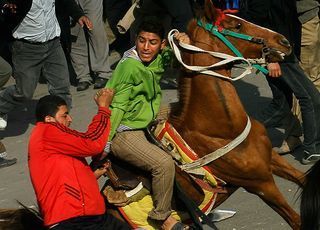
Yesterday morning the son knew things were changing in Cairo. I see the point of OurSally's comment on the last post. But it does seem that up till then the Egyptian revolution (like many revolutions, I imagine) had its domestic, even home-spun side. OK -- deadly and scary, messianic and liberating, but simultaneously human and even occasionally comic.
The son couldn't help laughing when the woman from the flat downstairs came up to complain about him and his flatmates making a noise moving the furniture around, when only half an hour earlier they had all been deafened by the "buzzing" of the Egyptian army jets. And his description of the well-meaning (and so far as I can tell honourable) group of locals who manned the security on his street has a slightly Homeguard tinge to it. They made a great show of checking people's ID, but he never saw them turn anyone away.
So far so good. But we realised that it was changing on Wednesday morning. He said that he had heard rumours that 'something' was going to happen -- and he was going to stay in.
Later that day he and his flatmates knew they must leave.
As it happens, in case you think that I was taking too much of a laid-back attitude to all this, I had already got him a flexible ticket out and was able to book him a seat on the British Airways flight Thursday morning (as I write this I still dont know if he is actually ON this flight, so fingers crossed).
But the problem was, how to get to the airport? The Foreign Office advice was to proceed to the airport under your own steam . . . ie they weren't laying anything on to help. But what is "under your own steam" in the middle of a city effectively at civil war, with dwindling petrol supplies. It's not like you can just hail a cab.
He had found it hard to get through to the Cairo helpline, so I rang the British "emergency number".
Now I am not keen on knocking the help given by our men and women in the embassies (the daughter, for example, has in the past been the beneficiary of really outstanding help from them . . .and I feel that I owe the FCO a thing or two). And actually the people I spoke to on the phone yesterday were extraordinarily nice (I was particularly taken with the young man who had read one of my books!) But they didn't actually have much of a grip, or know much about Cairo in general, let alone in the middle of a revolution.
They sweetly repeated the advice about getting to the airport independently and insisted that the embassy was not providing any form of transport from downtown. When I asked what advice they had for making that journey ... like HOW did they think that you actually got to the airport . . . they didnt have much of an answer. Does he know anyone with a car? asked one. So, maybe he will just have to stay put until things calm down, suggested the other.
We had several bright ideas. Should he go round and check into some big hotel? And then they would get him transport. Or should I at least ring up the hotel where we had stayed and find out what their idea on getting the airport was (the hotel would have more local knowledge than the embassy). But before we put any of this into practice, he and his mates had fixed up for their university to provide a car, which did actually work
As I finish, he is sitting in the airport bar having a beer, boarding pass in hand. BUT he has left all his stuff apart from his laptop in his flat. There's a story here, he tells me . . . and I will tell you in due course.
February 1, 2011
Live from Cairo
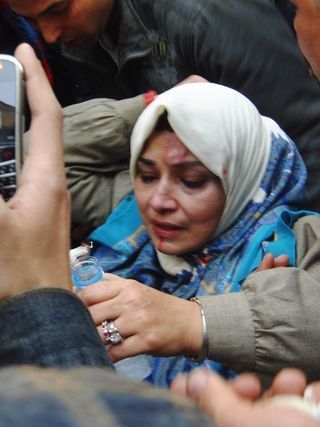
Well almost live from Cairo. This is the son's account of last Friday, which has just reached me -- plus pictures by his friend Dylan Sodaro.Things have moved on since than, but this gives aflavour of what has been happening:
"Hearty breakfast at Qazaz. All forms of communication are down.
We listened to the Friday sermon on our balcony. The atmosphere is very eerie. Within about ten minutes of the end of Friday prayers the worshippers of a local mosque come marching towards Tahrir square. However, their destination is completely blocked by police in riot gear. It is this time that we decided to dip our toes in the waters of protest. We walk towards Talaat Harb street but there is not much action going on. At one point it looks like something very nasty is going to happen. A group of about 15 men with motorcycle helmets and sticks advance on the police. In my naïveté I thought that they would attack the police (they had no signs of being police men) but when they reach the lines of riot police they are welcomed into the fold. These men were the infamous plain clothes police thugs who were apparently targeting journalists later on in the day.
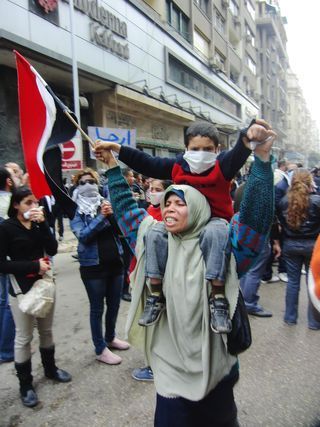
Then as we walk up towards Talaat Harb square we reach the heart of our local protest (though there are apparently other ones all over town). The people had taked over Talaat Harb square, one of the major hubs of downtown traffic. We decide to get a juice before the shop closes for business, which it does as we are finishing our glasses. The people walk around the square for a while, then head up north, as we join in the ranks. So far the spirits are high and the atmosphere is ecstatic. The demographic is mixed: a young boy holds and Egyptian flag from his mother's shoulders, old men, young men, rich, poor, the rest. After we get an ice cream the police begin to retaliate. It starts off in the normal fashion. A few tear gas canisters are fired and people retreat. Then they return to the police lines. I cannot see the front of the crowds so it hard to know if the protests are violent up there. The to-ing and fro-ing goes on for a while until the police decide that they want people out and launch a lot of tear gas. Me and Matt Scarvie duck down a side street and make our way through the Borsa etc. Run into an Egyptian who gives us table-cloth masks to help against the tear gas. We make a video of us chanting revolutionary slogans with our new friend. Turn up to Midan Falaki and there is quite a crowd of people but not much police. Stay there for a while and find Julia by herself taking pictures. She joins the group. We take a few pictures and wait around for a while. The crowds grow enormous and the police come up Bustan Street (the street my apartment is on) and engage the people. We duck down side alley but get hit quite heavily with gas. The table-cloth comes in useful but there is a wide variety of homemade Egyptian methods including vinegar, onions, pepsi and there is a debate on whether water helps or hinders. We try to duck back to Talaat Harb Square but that has been occupied by protestors and there are fights there too. We are sandwiched in between two areas of fighting and there is tear gas everywhere. We duck into Abou Shanab (father of the moustache) Egyptian souvenirs shop.
Take shelter there for about 10 minutes. Try to see if it's possible to go back home but the clashes are centred directly outside our apartment block so we duck back for a while. At some point an injured man is brought in by a group of friends. His ankle is bleeding and probably broken. They hear there is a doctor in a nearby restaurant (where we had breakfast in fact) but they are not let in so contiunue into the haze.
After 10 minutes the fighting moves back, so we run into our apartment at about 3. We lay low for a while, sending out a party for shwarma and foul. There a sporadic clashes between protestors and police outside our apartment. We see the police thugs throwing rocks at people. When the sun goes down Cairo starts to burn. We can see te national party HQ burning from our building. The army moves into downtown and the police are said to leave. We can still see a few roving gangs of security forces firing rubber bullets at people who are throwing rocks and Molotov cocktails at them.
Mubarak has been promising to give a speech "soon" for about 4 hours. Then some spokesman says he has an important announcement and Hosni Mubarak gives a terrible speech, which helps no-one. He promises to sack his entire cabinet but he will stay in power. Since everyone has been calling almost solely for him to stand down this does not make them happy. There is an enormous sound from Tahrir and we decide to go out.
The tanks cover Tahrir Square and people are all over them. There are burned out cars and it's a party atmosphere, though there is a feeling that things could get out of hand. Luckily they never do but we are surrounded by burning buildings and burned out car, there are men with souvenirs from the riot police and one man with a machete. We climb on the tanks, take a few photos and then go back.
Pick up 8 egg sandwiches from a sandwich cart which is for some reason in the area and go back home to bed, minus one sandwich for the bawab. Just before we get into our apartment it begins to rain and there is a moment of common euphoria in the street. We shake hands and exchange pleasantries with some Egyptians in the streets. A good omen Insha'allah."
If anyone want to use these pictures commercially, get in touch with me .. and I will put you intouch with Dylan.
January 31, 2011
Old girls reunion

I have never been very keen on 'alum' events. I know that the new world of university fundraising means that it is very important to keep the old boys and girls feeling bonded, and I am genuinely interested in what my old students are doing (how could you not be? what they are doing in 10 or 20 years time is probably a better guide to your success than how many Firsts and 2.1s you get). All the same I'm still dont feel I'm made for the 'class of 73' style of culture. And I've got a long history of this. When I left school, me and my best mate were the only refuseniks who wouldn't join the Old Girls Association. (Actually I got caught on this one: I eventually got so curious about what they were all doing that I fell into the arms of Friends Re-United.)
That said, getting back together on your own terms is fun. So on Saturday six of us who had been true mates at Newnham in the mid 1970s met for lunch in leafy Harpenden. Some of hadnt actually seen each other for 35 years. (It was, as you will see alcohol assisted...).
What were we all now doing? Well the tally went like this: a GP (the hostess), a civil servant in the Dept of Health, a lawyer on a career break, an agricultural scientist, a psychotherapist, and me.
And did we still get on?
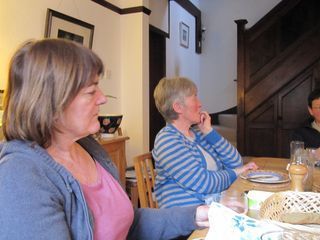
Yes indeed, and it was tremendous fun (even though I was keeping an eye on the phone to check for news from the boy in Cairo). But more interesting was the level of apparently spontaneous agreement  we had about 'the world' -- and especially on 'the cuts'.
we had about 'the world' -- and especially on 'the cuts'.
We were voluble in our unanimity at the short-sighted narrow book-keeping measures that were going on, that were all likely to cost the public purse MORE in the long run. The press can tut-tut, for example, about the expense of letting the over 60s roam the country for free on the buses -- but if you think of the cost of local care and support for those miserable and stuck at home, it is cheap at the price (AND it is fun AND it acts as a form of subsidy for the bus routes).
 As for the NHS itself, those on the front (and back) line had no doubt that the reforms were effectively a privatisation. The mantra of 'free at the point of use' would no doubt be preserved, but behind that the whole system was gradually (or not so gradually) being handed over to profit making companies. A public service doesnt just mean whether you get your hernia fixed for free...it is also about the absence of a profit motive higher up the foodchain. Where was all this going to leave the mentally ill? the elderly? and all the other troublesome and unsexy and longterm sick?
As for the NHS itself, those on the front (and back) line had no doubt that the reforms were effectively a privatisation. The mantra of 'free at the point of use' would no doubt be preserved, but behind that the whole system was gradually (or not so gradually) being handed over to profit making companies. A public service doesnt just mean whether you get your hernia fixed for free...it is also about the absence of a profit motive higher up the foodchain. Where was all this going to leave the mentally ill? the elderly? and all the other troublesome and unsexy and longterm sick?
Much the same went for free schools and the like. Toby Young might be dead keen on setting up a school now, but you can bet anything that when his kids hit 18, he will quickly lose interest. In fact, one of the reasons that schools have been run by the state is that we need them to be in the hands of those with longer term interest than the average parent.
And so on...
So why this unanimity?
Maybe it was simply because we were like-minded...we were friends and like-minded back then, and so we are now.
Or maybe (nasty thought this) we were all trying to make the occasion a success that none of us dared step out of what appeared to be the common line . . . but I dont honestly think so. I dont really think there were any radical free-schoolers and anti-bus-passers around the table.
Or maybe, I like to fancy, it was the result of a good, sensible woman's education -- that, in all our different subjects, had taught us to see through crap arguments. Thank you Newnham?
Meanwhile as we flicked through the photo albums, we realised that we had all lost touch with Sarah Robertson (S. C. A. Robertson, as I recall). She read Maths, then escaped to Social Anthropology. If you're out there Sarah, pipe up... or if anyone knows what she is doing. I've tried googling, but there are rather too many Sarah Robertsons in the world.
January 28, 2011
What's happening in Cairo (a Mum asks!)
Thanks one and all for your comments and emails. Just to keep you updated.
We heard from the boy in Cairo yesterday .. to say he was OK, and that he would call 'tomorrow'. Well, of course, he cant phone as the mobile networks have been cut, and so has the internet (did we realise that it was so easy to do that?).
So at this point Mum has to learn not to worry . . . and to go through the reasons in her head.
1) There is nothing whatsoever to be done, so worry is energy expended to no point whatsoever. OK that kind of argument isnt usually very efficacious when you feel a bit of anxiety coming on (that's the point of anxiety -- it isnt susceptible to a good dose of common sense). All the same, it's a good thing to reflect on.
2) Whatever's happening, this 'keeping in touch with the young' habit is ever so recent, ever so 21st century.
When we went away, back packing or studying or whatever, in the 1970s, it wasnt a bit like this.
You waved the family good bye and for the next few weeks or months you tried to remember to send them a postcard from time to time (and to put vaguely the right stamp on it), and if you were lucky the old people back home received it before you actually got back. If you really wanted to give them a treat (and/or scare the hell out of them) you might very occasional phone them up -- a process that (yes even the 70s) involves going to some central telephone exchange, booking a slot and waiting around for ages until you were called into some sweaty booth.
I think they just assumed that no news was good news; and maybe that was a lot healthier. Though I think even my Mum might had the occasional pang of anxiety if I had been in Cairo at this minute.
Lets hope the boy is being sensible.
Mary Beard's Blog
- Mary Beard's profile
- 4113 followers



